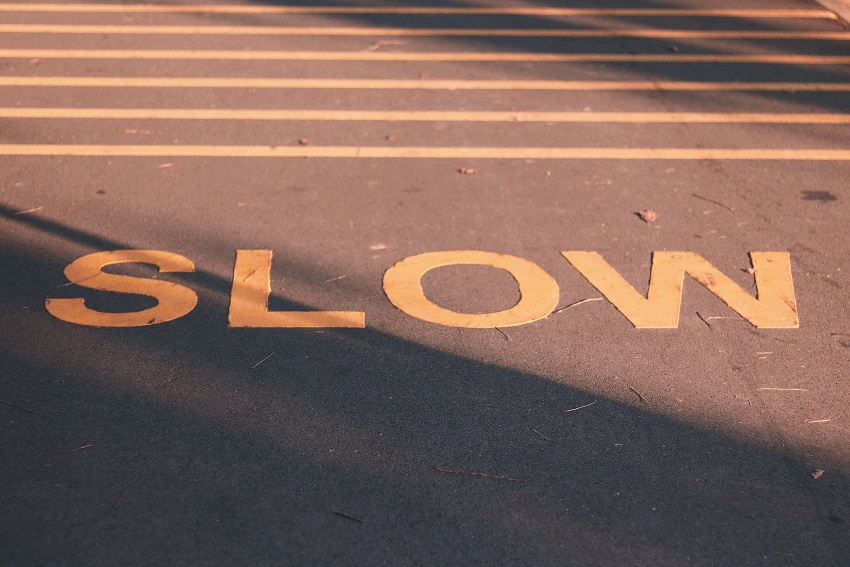I Don’t Have Time to Think
One topic that crops up regularly in both my one to one coaching sessions and group workshops is how difficult it is to find time to just think. We go through life at such high speed that it’s difficult to find time for reflection or to plan ahead. Instead, we live life on autopilot, endlessly tackling task after task without deliberate thought or intention.
Perhaps this is because for many of us, being effective means being busy. More and more it feels as though value is placed on quantity and speed rather than quality. The ability to multitask, juggle and quickly jump from one task to the next without blinking is held in high esteem and seen as crucial for productivity.
However, research in the field of neuroscience tells us that the opposite is true. Evidence suggests that by slowing down and focusing on one task at a time, we will improve our productivity, effectiveness and wellbeing. It’s through this slowing down that we create more space and time for deliberate, conscious thought and reflection. In this space we are better able to learn, develop and grow, moving forward rather than just running very fast on the spot.
It’s Science
When we’re frantically busy, our body runs on a relentless supply of adrenaline, cortisol and other hormones that are associated with the stress response. Professor Mark Williams describes this as being in a constant state of high-alert in which our fear center is active as if we’re being chased by a predator. In this state, we’re only able to see and react to what is immediately in front of us. We’re unable to see the ‘the big picture’ or think creatively or strategically. Our thinking and decisions are fear-based rather than deliberate or conscious.
This is why many of us can get to the end of a day or week and be unable to recall the things we’ve done. We’ve been on a treadmill, responding on autopilot without deliberate thought.
Allowing time and space for conscious thought and decision making can be scary. Many people use busyness in the same way as social media or television; to distract themselves from feelings that are uncomfortable or difficult. Being constantly busy is a crutch we can use to get us through the day. But however uncomfortable or unusual it might feel to step off the treadmill, slowing down has numerous benefits.
By slowing down, we allow our brains time to make connections, uncover new insights and develop new ideas. It gives us space to make decisions with intent and empowers us to deliberately focus our energy productively, rather than expending it on constant ‘firefighting’.
This also has benefits for our mental wellbeing. Acting with intent means we’re more likely to make choices and decisions that align with our values and the way we want to live. It also means we’re giving ourselves fully to each task, decision or encounter, giving us a richer experience of life.
How to Slow Down
In 18 Minutes to Find Your Focus, leadership coach Peter Bregman offers a practical way to find more time for present awareness, focus and reflection each day.
It starts with 5 minutes each morning. In those 5 minutes, consider what your priorities are for the day. What do you want to achieve and how are you going to do it?
Then, throughout the working day, spend 1 minute each hour consciously asking, “Is what I’m doing right now moving me forward? Is it what I should be doing?”
This conscious minute will help you stay focused and on track, minimising the distractions that can seem so urgent in the moment, but in fact, just derail us from the tasks that will actually make a difference to what we’re trying to accomplish.
Finally, in the evening, find 5 minutes to reflect on the day that’s passed. Did you achieve what you wanted to? If not, what prevented you from doing so? What have you learned?
This simple but effective practice forces you to slow down, step out of autopilot and assess the real value of how you’re spending your energy and your time.
Leveraging opportunities for peace and quiet throughout the day can be a conscious choice. Here are a few other ideas that could help:
- Rather than distracting yourself with a podcast or news on your commute, make some notes about the day ahead. Think about your goals, the barriers you might face and how you will overcome them
- It’s tempting to fill every minute of the weekend with activities as a reaction to not being at work. But are you giving yourself time to decompress and rest? Mental downtime is essential for improved creativity but your brain can’t rest if it’s constantly stimulated. Carve out some time to simply do nothing
- Try switching your social media off for one hour each day, perhaps while you’re eating your evening meal. Could you even shut it down for the whole weekend?
This deliberate slowing down might feel uncomfortable if you’re used to working at high-speed. But the crucial thing to remember is that slowing down doesn’t mean stopping. Instead by creating this mental space you will be able to move through life in a more meaningful way, focused on quality and authenticity.
Resources:
Mindfulness: An Eight-Week Plan for Finding Peace in a Frantic World by Professor Mark Williams

